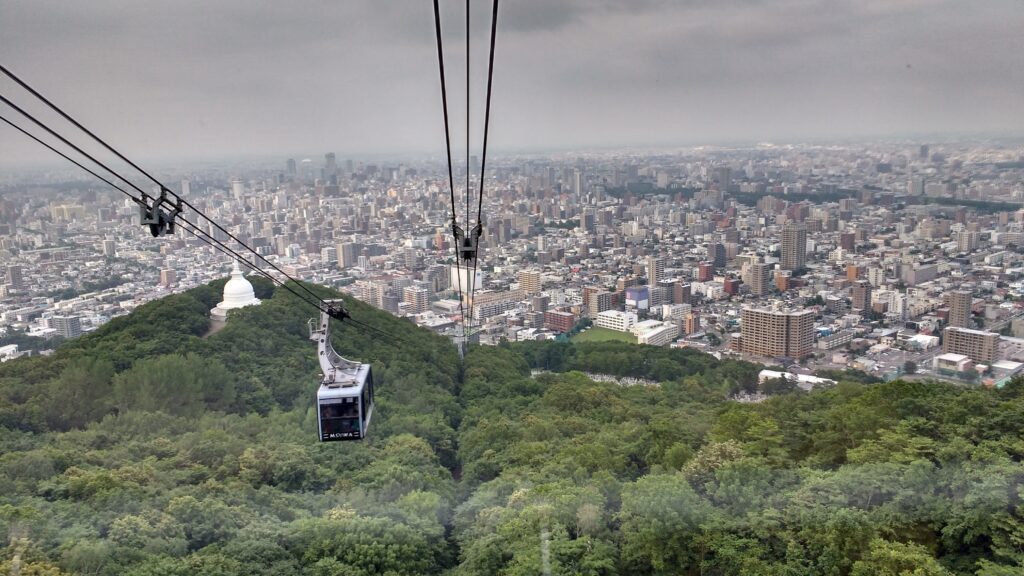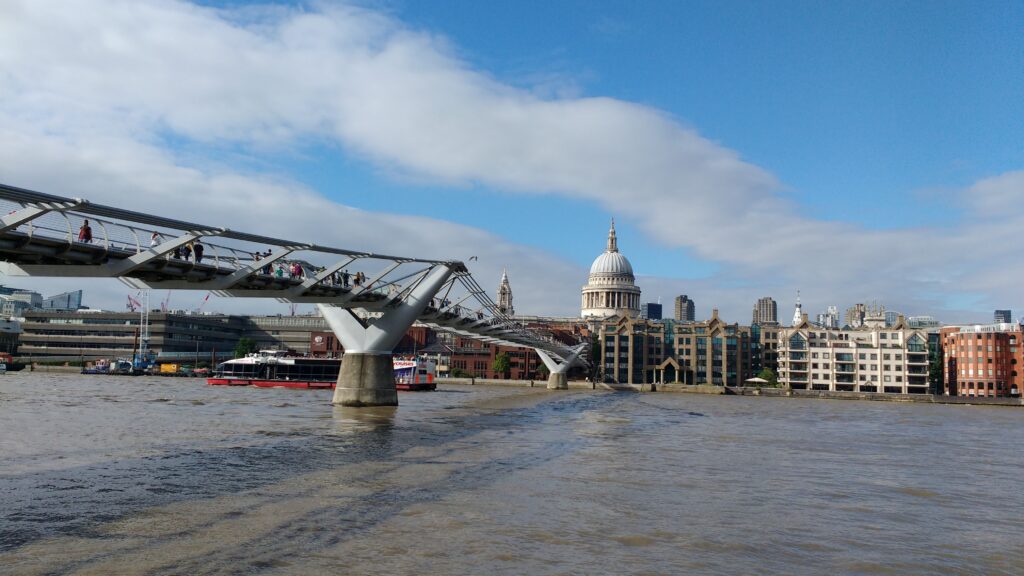There are moments that feel like heaven on earth.
It could be a particularly penetrating song that digs into your chest and draws you up. It could be an invigorating interaction with a friend or gifted stranger, when they see you and know you in such a way that you can feel the Holy Spirit whispering in their words or a sumptuous snack that tastes like a tiny taste of heaven. Whatever it is for you, there are moments in which Jesus breaks into our world, and gives us glimpses of somewhere even better – through worship and the sacraments, through our sensory experiences, through our relationships. Now, here, we only have so much capacity: we are limited to tastes, the experience of the presence of God inevitably slips and fades, not because God is any less present but because we can only handle so much, here and now.
Of course, this happens with earthly things. If you see too many castles and palaces without breaks in between, they blur together and get…well, boring. They’re sort of just littered around the Central European landscape, looming on tall hills or sprawling across imperial sites. Still, even in the midst of so much mundane beauty, there are things that arrest our attention. They are tiny reminders that worm their way into our busy schedule, little alarms, that wake us from our sleepwalking through life and say look!
We are surrounded by so much that is good and lovely, so many painted skies and miraculously intrepid plants, that we can become desensitized to it. It takes work to cultivate a life in which awe and wonder can touch us in the midst of so much that is miraculous and terrible. God is not reliant on our intention to break into our lives, to send us little reminders of His Presence – He is always there, even when we’re not in any shape to notice, and He is calling even when we are too overwhelmed to hear. Those moments of heaven on earth, those little touches of something Divine, will always persist whether we are receptive or not. But, we can also choose to intentionally search for God amidst the wonder – and be aware of the realities of beauty fatigue.



When I arrived at the pub where I would be staying in London, I was apprehensive. My nose was running with this weird clear non-snot that my sinuses put out after too much airplane. I would be sharing a room with 17 other people in the back of a pub in Chelsea, and I wasn’t quite sure how that would work. It turned out great, the hostel was really a wonderful place to stay – but at the time, I didn’t know that. I was not that enthusiastic about being in London – I had intended to be, and budgeted to be in Dhaka, Bangladesh so last-minute changing my plans had not exactly been welcome. London is one of the most expensive cities in the world, and various budget-traveler guides advise it takes 60-95 pounds a day (that 75-117 USD) to visit comfortably, meaning you would need, at minimum 420 pounds (or 520 USD) for a week. After accommodations and a 20 pound-bus trip to Cardiff, I only had about 30 pounds left (or about 4 per day).

So I was on a diet of grocery store 2-pound meal deals and discolored cold canned peas. I was tired. I had never been on such a long trip before, and I had been going-going-going and sucking up experiences and information for 40 days straight and I just wanted to lie down and do nothing.
I had no interest in walking around and seeing what London had to offer. I just wanted to lie in bed. I was homesick and exhausted from so much seeing and doing. The trip had been long, and would continue to be long. And a much larger budget would not have changed that fact, even if hot food and access to public transportation would have significantly improved my experience.
Perhaps you love to travel, and know what it’s like to be a month’s long journey. Maybe your life has never allowed you the time, money, and space to travel for that long. But even if you have never been a tourist for that length of time – you do know what it’s like to take a long, long trip. Because our lives are indeed one long voyage through this earth, running towards God, running towards heaven.
We are not, indeed, citizens of this world. Even if, by some miracle, we live on the same land our families have inhabited for generations, even if we are deeply connected to the places we live, this is not our true homeland. We are aliens, here. Strangers.
Jesus, in this midst of his prayer to the Father for his disciples before he leaves them, says and now I am no longer in the world, but they are in the world, and I am coming to you. Holy Father, protect them in your name that you have given me, so that they may be one, as we are one (John 17:11). He goes on to say 15 I am not asking you to take them out of the world, but I ask you to protect them from the evil one. 16 They do not belong to the world, just as I do not belong to the world. 17 Sanctify them in the truth; your word is truth. 18 As you have sent me into the world, so I have sent them into the world. (John 17:15-18). Jesus has come into the world, and now he is returning to the Father – and praying that we, who come after, might be protected here on this earth. As God sent Godself into the world in the form of Jesus Christ, so to our Lord and Savior Jesus Christ has sent us. Key, we do not belong to the world, in the same way Jesus does not belong to the world. We are in it, but not of it.
We are long-term visitors to a foreign country.
Like Jesus, who was born of the Virgin Mary, though, there is a sense in which we are of this world. In the New Testament, we see glimpses of this true homeland. Paul writes:
18 For many live as enemies of the cross of Christ; I have often told you of them, and now I tell you even with tears. 19 Their end is destruction, their god is the belly, and their glory is in their shame; their minds are set on earthly things. 20 But our citizenship is in heaven, and it is from there that we are expecting a Savior, the Lord Jesus Christ. 21 He will transform the body of our humiliationthat it may be conformed to the body of his glory, by the power that also enables him to make all things subject to himself.
(Philippians 3:18-21)
We are actually citizen of heaven, and that is intimately tied with our waiting for Christ and freedom from worshiping our own bellies. He will transform us, who are confusingly in this world made of feeble bodies, into conformity with his body. Everything is subject to him, including us and our bodies. This is not our homeland, because of his intervention. We are stranger and foreigners on earth, like all those before us who died without having received the promises of God (Hebrews 11:13). Like those ancestors in faith, we are seeking a homeland (cf. Hebrews 11:14).
As we see in Ephesians, this welcoming of all people into the homeland (once a promise exclusively for the Jewish people), is because of Christ.
17 So he came and proclaimed peace to you who were far off and peace to those who were near, 18 for through him both of us have access in one Spirit to the Father. 19 So then, you are no longer strangers and aliens, but you are fellow citizens with the saints and also members of the household of God, 20 built upon the foundation of the apostles and prophets, with Christ Jesus himself as the cornerstone; 21 in him the whole structure is joined together and grows into a holy temple in the Lord, 22 in whom you also are built together spiritually into a dwelling place for God. (Ephesians
We have become members of the household of God, welcomed as citizens. In Christ, the whole structure of the household comes together – and we, the Church, become a temple for the Lord.
What we see, from Jesus himself and from Paul, is that we are not in our homeland. As much as we are formed from the dust of this world, it is not actually home. We make our lives here, but the reality is that this is one very long journey. And even in the places where we have settled and found comfort, we see the symptoms of a long journey. Loneliness and a sense of not quite fitting in, fatigue and a sense of overwhelm from the strangeness of it all – and the struggle that no matter how much we try, we can’t quite seem to get our feet under us. That things, no matter how good and beautiful they can be, do not quite make sense – and that no matter how many places we go, how many things we do, there is still so much more to see and do. The world is both inexhaustible in its wonders, and an exhausting blur.
But in the midst of all those moments, there is that reminder – that we have been welcomed into God’s family, that we are not citizens of this world, because of Christ’s work. That the work that God has been doing in the People Israel was opened up to all people in Jesus so that we too might be grafted among God’s people to share the rich root of the olive tree (cf. Romans 11:17).
What would it mean if we took seriously that life is one very long journey, and that even when we are “home” we are not in our homeland? How could we think about life as though we are travelers on a very long trip?
What would it mean if we took seriously that heaven is our home? That those little reminders of God’s presence are reminders of the place we truly belong?
Leave a Reply